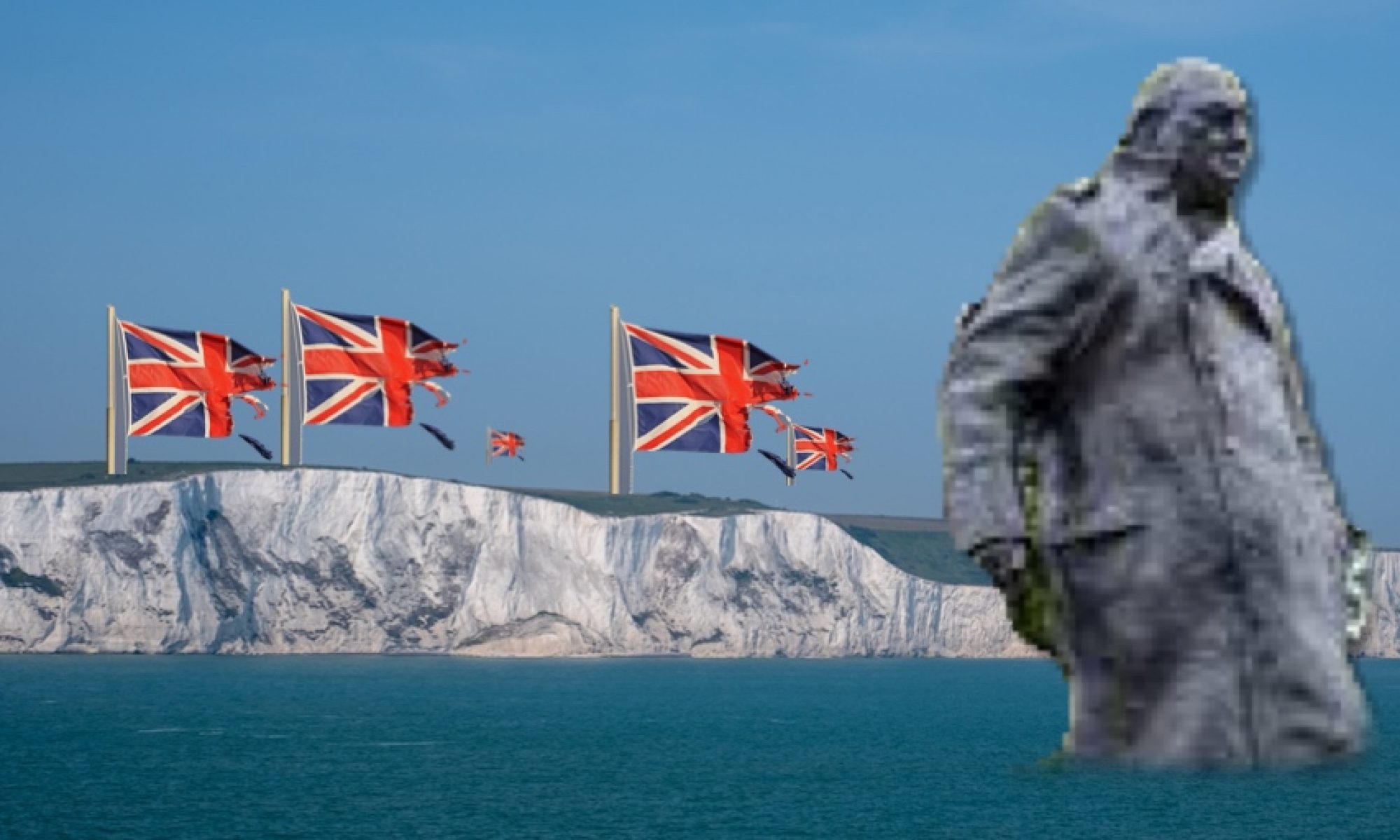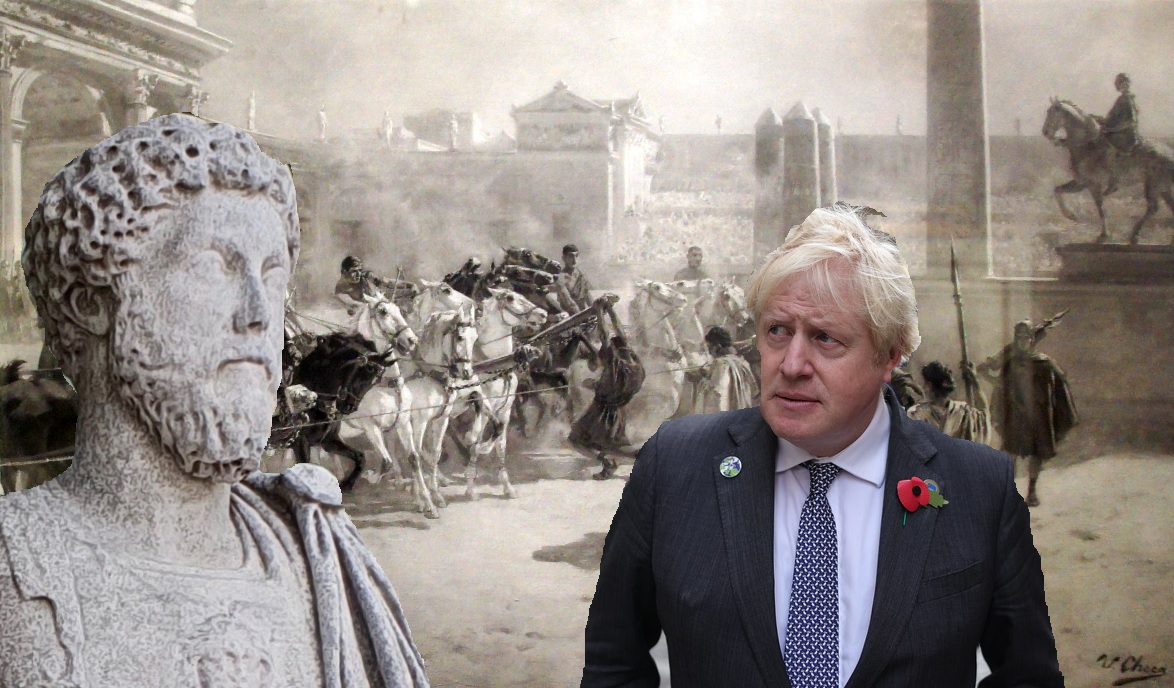VENI, VIDI, VICI: The world’s greatest historian has made an astounding discovery. Our entire thinking about the Roman Empire has been wrong.
The historian in question is the notorious drunk, lecher, and sometime hobby prime minister, Boris Johnson. His credentials are world beating (“He is the finest historian, yes yes yes, of his, or any other, generation, wiff waff, yes really.” – Stanley Johnson). His momentous discovery came about while casually drawing parallels between himself and Caligula.
Received wisdom is that the Roman Empire, like all empires, grew complacent. It literally rested on its laurels. Then disgruntled savages from The North rolled up during siesta and trashed the place. But according to the great Johnson, this isn’t true. Instead, impoverished fruit growers throughout the Empire could no longer pick their fruit, much less deliver it to Rome, because the Emperor had decreed that only native Romans were allowed to perform these essential tasks. And native Romans, more accustomed to getting fat and rich on the back of slave labour, simply weren’t interested in honest backbreaking work.
So instead, to maintain the illusion of plenty, Roman market traders displayed cardboard cutouts of the best fruit and vegetables the Empire could provide. Johnson leaves out the explanation of how printing and cardboard had been discovered by the Romans, only for the technology to be forgotten for a thousand years (“A mere detail, you know, isn’t it, marvellous,” he explained).
This worked for a while, the patriotism and sovereignty feeding the population, but real, gnawing hunger began to creep in. One disloyal subject, according to Johnson, must have crept out one night and collected all the displays to eat, and in the morning there was no more fruit! The Emperor called upon the inventors of cardboard and printing, but discovered that they had been banished permanently because they weren’t Roman. Thus the Empire fell.
And that’s it. Quod erat demonstrandum. Simples.


